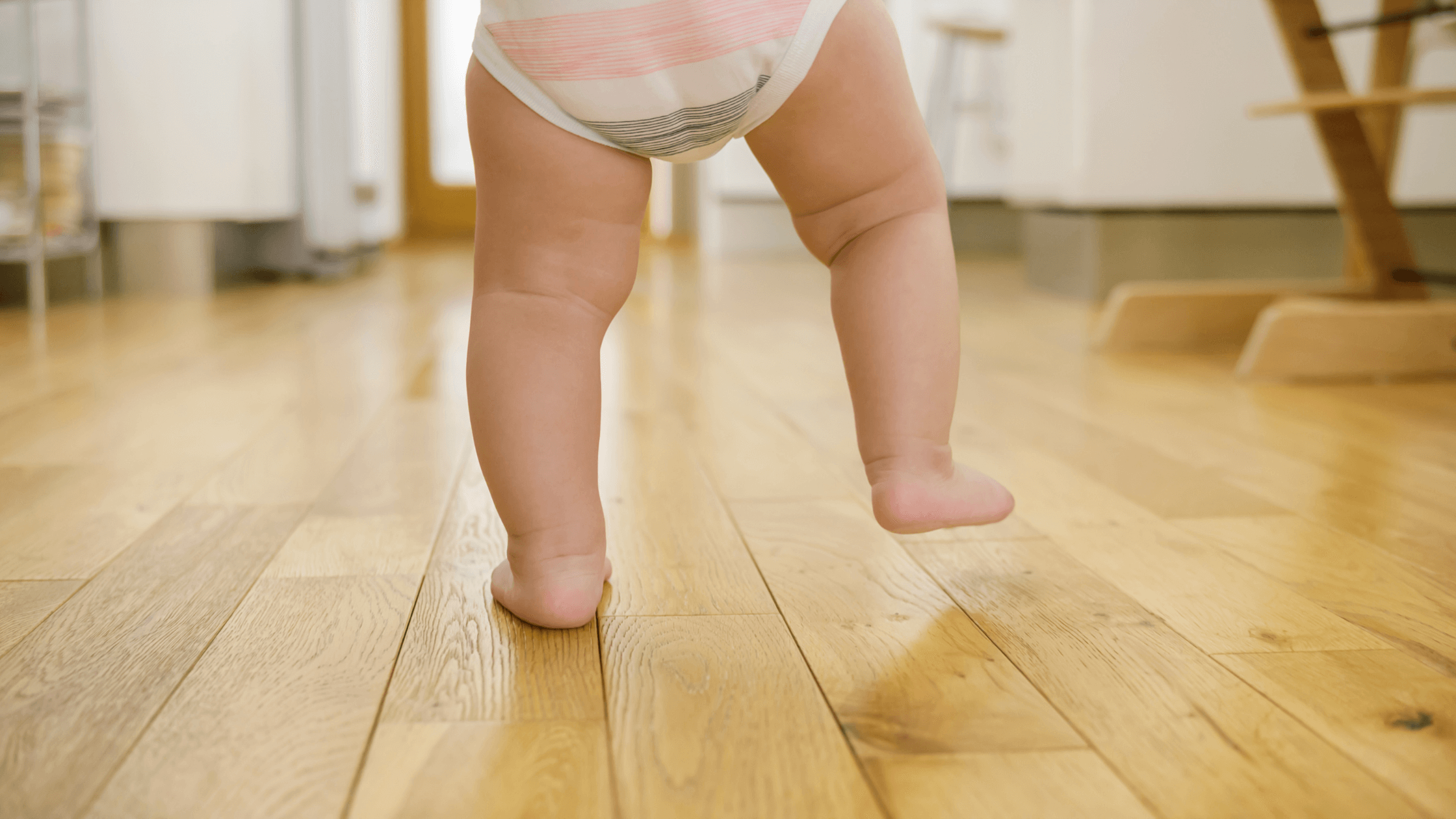
23 Jun When Should Babies Start Walking?
2 min. readEvery baby grows at their own pace, and one big milestone many parents look forward to is when their little one starts walking. But how do you know what’s normal and what’s not? Let’s talk about when most babies take their first steps, signs they’re getting close, and when to check in with your pediatrician.
Typical Walking Age
Most babies start walking between 9 and 15 months. Before they take those first steps, they go through other movement milestones like rolling over, sitting up, and pulling to stand. These early skills help build the strength and balance needed for walking.
If your baby isn’t walking by 18 months, it doesn’t always mean something is wrong. Some kids are just late bloomers. But it’s a good idea to talk with your pediatrician so they can make sure your child is developing as expected. You can also read more about what’s typical in our blog Baby Developmental Milestones: What to Expect.
Signs Your Baby Might Be Ready
Here are some signs your baby is getting close to walking:
- They can pull up to stand using furniture
- They cruise along the couch or coffee table
- They balance while standing without help
- They try to squat or shift weight from foot to foot
These are exciting clues that independent steps may be just around the corner. Want more info on tracking your child’s development? Check out Is My Baby on Track? What to Know About Developmental Milestones.
How You Can Help
Parents can support walking by giving babies safe spaces to move and explore. Let your baby spend plenty of time on the floor to practice crawling and pulling up. Avoid walkers, which can delay walking and increase the risk of injury. Instead, encourage play with push toys and hold your baby’s hands as they practice standing and stepping.
When to Reach Out
If your child isn’t walking by 18 months or isn’t showing signs of movement like crawling, standing, or cruising, talk to your pediatrician. Early support can make a big difference.
And while you’re focused on gross motor skills, don’t forget about other milestones too. Curious about speech development? Check out our post on Toddler Speech Milestones: When Should They Start Talking?
Have questions about your child’s development? Our pediatric team is here to support you every step of the way.
Schedule an appointment with us today and get personalized care from a team that truly cares.

